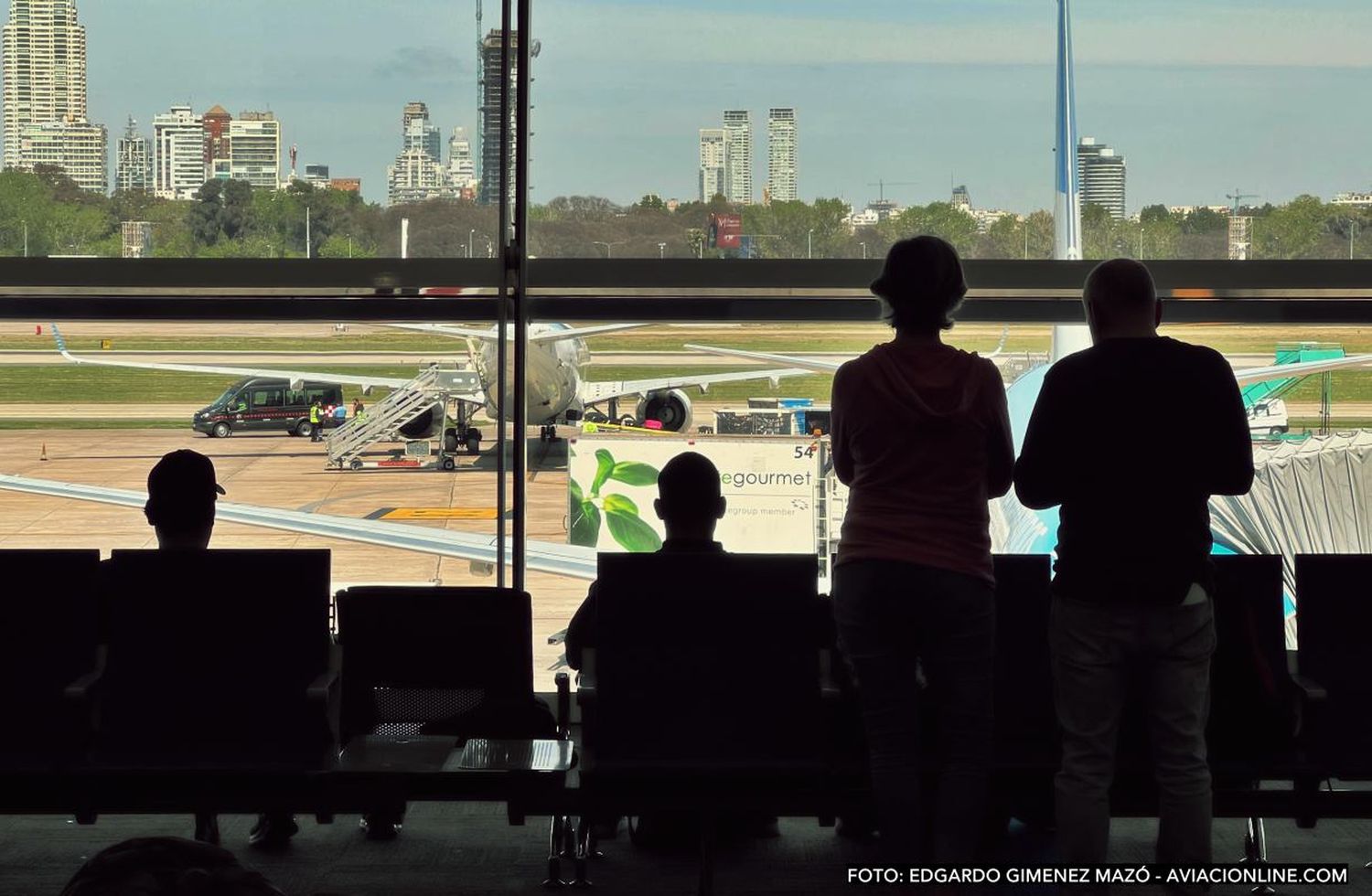Airlines enraged after Argentina’s new tax on air fares
Last Wednesday, Argentina’s lower house of Congress approved the creation of a new tax to be levied on airline tickets, called «Aviation Security Tax»; the proceeds of which would be used to finance the Airport Security Police (PSA in Spanish).
Considering the high level of taxation on airline tickets in the South American country, which can exceed 50% of the value that airlines actually receive for a flight, this new tax unleashed a strong wave of criticism from the industry, despite the fact that today it would have a value of around ARS 250 (~USD 1), although its evolution will be tied to the salary of a low-ranking agent of that force, without exceeding 0.25 percent.
«This recurrent policy of taxing the industry is becoming unsustainable. Aviation has demonstrated its commitment to the government to work together, effectively and with vision on the sustainability of air transport in Argentina post-pandemic, where our forecasts estimate recovery to 2019 levels by 2024. But instead of facilitating this process, the government is imposing more obstacles,» said Peter Cerdá, IATA regional vice president for the Americas.

«Approving two new taxes in just two weeks is a crippling blow to the industry and primarily to all citizens. Argentina is already plagued by unjustifiable taxes and fees that hurt demand for air travel and ultimately inhibit the country’s development,» Cerdá added, referring to the fact that in early October the Argentine government added a 25% tax on the purchase of goods and services abroad, including international airline tickets, called «Qatar dollar» by the media as it is an attempt from the government to tax the large flow of Argentine tourist who will attend the FIFA World Cup that will take place in Qatar next November.
ALTA, the Latin American and Caribbean Air Transport Association, explained that «a ticket issued in Argentina in pesos has a total of 7 taxes and fees, namely: airport use tax (USD 57), migration and customs tax (USD 10), security tax (USD 8), income tax (45%), country tax (30%), income tax withholding (5%) and the tax of the national tourism board (7%) + 25% Qatar dollar and now PSA tax, which makes Argentina the country with the highest tax burden for the passenger».
«Good practices and concrete examples demonstrate how balanced and efficient taxation attracts international and domestic travelers activates multiple industries and generates greater revenues for the State and the population. It is important to emphasize that aviation is one of the most aggravated industries worldwide. In Argentina, it is even more so,» added Jose Ricardo Botelho, Executive Director & CEO of ALTA.

Locally, Felipe Baravalle, executive director of JURCA, the local chamber of airlines, said that «airlines already pay for private security services at the airport because today the PSA does not cover, for example, bag scanning, which is their responsibility», emphasizing that this will make tickets more expensive and creates a situation that they consider illogical given that air passengers end up financing a federal force that operates in many areas, not just the airport. The Argentine government also often uses the PSA for police operations related to federal crimes in local communities.
Mauricio Sana, CEO of Flybondi, the first Argentine low-cost airline characterized by a very open communication, said that «it seems little and they try to make it go unnoticed, but the possibility of flying is getting more and more expensive. Approximately 250 pesos for next year would add up to 40 million dollars that passengers will have to pay with this new tax».
This figure could be reached considering the 30 million domestic and international passengers that will fly in Argentina in 2023, a dollar value that, according to the official government budget for 2023, would close at 270 pesos by the end of next year, and a salary of PSA personnel that is in line with the projected inflation of 60%. But if we consider the background, all values may end up falling short.

«And then what new taxes will be created? I am convinced that there is an efficient way to operate without overburdening passengers with taxes. And I insist that there is a need for clear long-term policies that encourage the market and the sector; and not to put pressure on it with taxes and fees that only result in fewer and fewer people being able to access a ticket», concluded Sana in a subsequent contact with Aviacionline.
The paradoxical thing about this is that it occurs just days after Buenos Aires hosted the ALTA Airline Leaders Forum, an event that brought together the top leaders of the airlines of the region, and two weeks after a similar event, but of the airport industry, the ACI-LAC Conference, in which government authorities and air transport representatives emphasized the need to work together to develop the sector given its positive impact on the economy.


Comentarios
Para comentar, debés estar registrado
Por favor, iniciá sesión